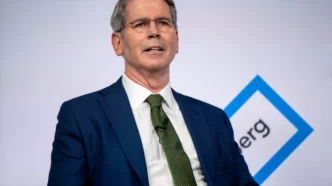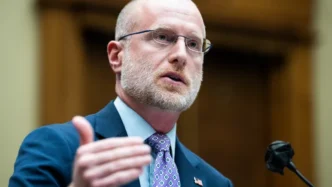The U.S. Department of the Treasury has officially lifted its economic sanctions against Tornado Cash, a decentralized cryptocurrency mixer previously accused of facilitating large-scale money laundering operations. Tornado Cash was originally sanctioned in 2022 after U.S. authorities labeled the platform a hub for criminals and state-sponsored hackers seeking to obscure the origins of illicit funds. According to the Treasury, Tornado Cash was responsible for laundering over $7 billion in cryptocurrency, including hundreds of millions of dollars stolen by North Korean hackers linked to the notorious Lazarus Group. These hackers had allegedly used the mixer to conceal funds stolen from multiple crypto exchanges, raising serious national security concerns.
The sanctions sparked immediate backlash from privacy advocates, open-source developers, and cryptocurrency users who argued that the move set a dangerous precedent by targeting a decentralized smart contract protocol rather than a centralized organization or individual. In August 2023, Tornado Cash co-founders Roman Storm and Roman Semenov were charged with laundering over $1 billion in cryptocurrency through the service. That same month, a Texas judge sided with the Treasury in a lawsuit filed by Tornado Cash users and privacy groups challenging the legality of the sanctions.
However, the case took a dramatic turn in November 2024 when the Fifth Circuit Court of Appeals in New Orleans ruled that the sanctions imposed on Tornado Cash were unlawful. The court concluded that smart contract-based services like Tornado Cash do not fall under the Treasury Department’s jurisdiction because they do not qualify as property and cannot be treated as such. Furthermore, the court argued that open-source code itself cannot be sanctioned, reinforcing the legal distinction between code and the entities or individuals who may use it for illegal purposes.
In response to the court’s ruling, the Treasury announced on March 21 that it had exercised its discretion to remove the economic sanctions against Tornado Cash. The department formally notified the court, stating that the case should now be considered moot given the sanctions lift. Despite this development, the Treasury made it clear that it remains focused on monitoring North Korea’s cybercrime and money laundering activities, emphasizing its continued commitment to enforcing sanctions against entities and individuals who pose a threat to national security.
While the removal of sanctions is a significant win for the cryptocurrency community and privacy advocates, some legal experts warn that the case may not be fully resolved. Coinbase’s Chief Legal Officer, Paul Grewal, argued that a final court judgment is necessary to prevent the Treasury from reissuing similar sanctions in the future. Grewal emphasized that the case can only be considered moot if the Treasury provides assurances that it will not revisit its decision or attempt to sanction Tornado Cash or related entities again.
The outcome of this case has broader implications for decentralized finance (DeFi), open-source development, and regulatory oversight of blockchain technologies. It raises important questions about the government’s authority to regulate or sanction software tools that are not controlled by any single entity. Meanwhile, the Treasury reiterated its resolve to disrupt financial networks supporting North Korean cybercriminal operations, ensuring that similar risks remain a top priority.













